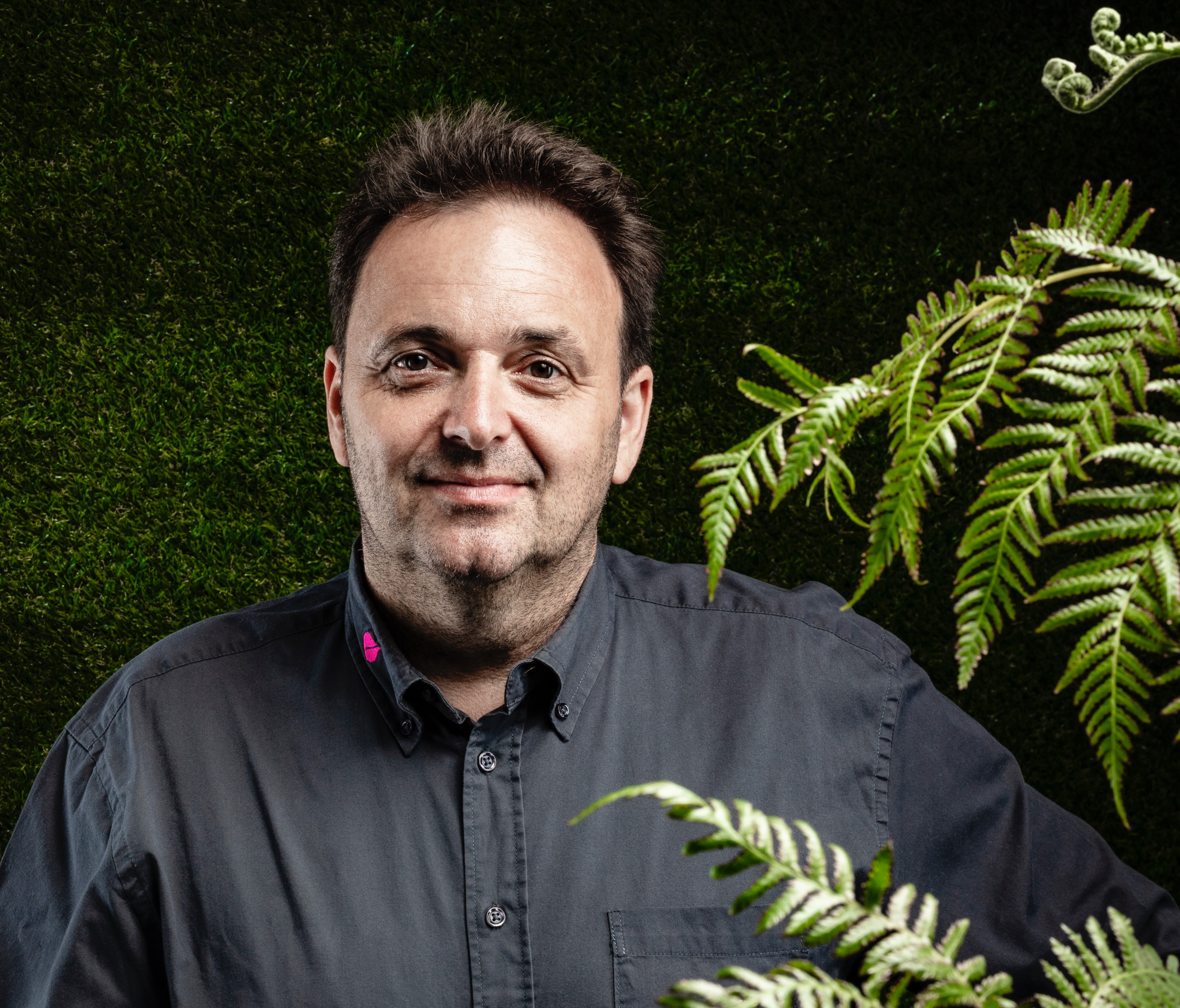Stephan Kircher: Floriculture is My Passion

Stephan Kircher: Floriculture is My Passion
Sometimes, children follow in their parents’ footsteps, but it’s not always a given. In Stephan Kircher's life, despite his father being a master gardener in various companies in South Tyrol and Germany and introducing him to the profession of floriculture from a young age, his passion for this craft only truly emerged around the age of 20.
Mr. Kircher, was your interest in your father’s work not immediate?
When I was a child, my father was responsible for cultivation at Floricoltura Gadner, which was located where Vives stands today, and he often took me along with him. In 1979, when I was 12 years old, he opened his own business on Maso della Pieve street in Bolzano-Bozen, and I frequently visited the company. At 15, he enrolled me in a boarding school in Gruyères, Switzerland, to learn French. In 1983, I took the entrance exam for the Centre Horticole de Lullier in Geneva, where I completed three years of professional training. Although I always enjoyed working as a florist, by the age of 19, I still wasn’t entirely sure if it was the right profession for me.
When did you become convinced?
When I returned to Bolzano, my father immediately involved me in the company, giving me the freedom to develop it and introduce new ideas. It was during those years that my passion truly emerged.
From the outside, floriculture seems like a rewarding activity, working with nature and people, but what are the challenges?
Working with plants and nature is very fulfilling, but it’s much more complex than it seems. We are highly dependent on weather conditions, which vary every year. Many factors are crucial for producing high-quality plants: the quality of young plants, the soil (substrate), fertilization, pest control using beneficial insects, available space, climate control in greenhouses, and the ability to sell the plants at the right time (again, weather conditions play a major role here). However, growing plants is one thing, being an entrepreneur is an entirely different challenge. Today, excessive bureaucracy, workplace safety regulations, a shortage of skilled labour, and restrictions on the use of plant protection products make the job much more difficult than it used to be.
I imagine that in your field, more than ever before, specific skills are required. What does a "Master" gardener need to know today?
Our profession is very broad and requires a wide range of skills. First, the variety and diversity of plants have increased significantly. Choosing the most suitable ones for cultivation in a specific company is much more complex than it used to be. A gardener must understand the needs of all plants, which are often very different from one another (light, soil, fertilizer, temperature, watering). The field covers everything from fruit trees, vegetables, citrus plants, indoor green plants and succulents, orchids, hydroponics, garden plants, herbaceous perennials, lawns, and tree planting to the design of gardens, irrigation systems, green roofs, and vertical gardens. Additionally, knowledge of plant diseases, pests, deficiencies, and the appropriate remedies and methods is essential. Human and social skills towards employees and customers are also becoming increasingly important.
Is passion enough to have a "green thumb"?
One key aspect is observing plants and nature to understand them better and intervene correctly and at the right time to prevent problems. Passion certainly helps a lot, as does common sense.
Image: Stephan Kircher, Courtesy Stephan Kircher.


